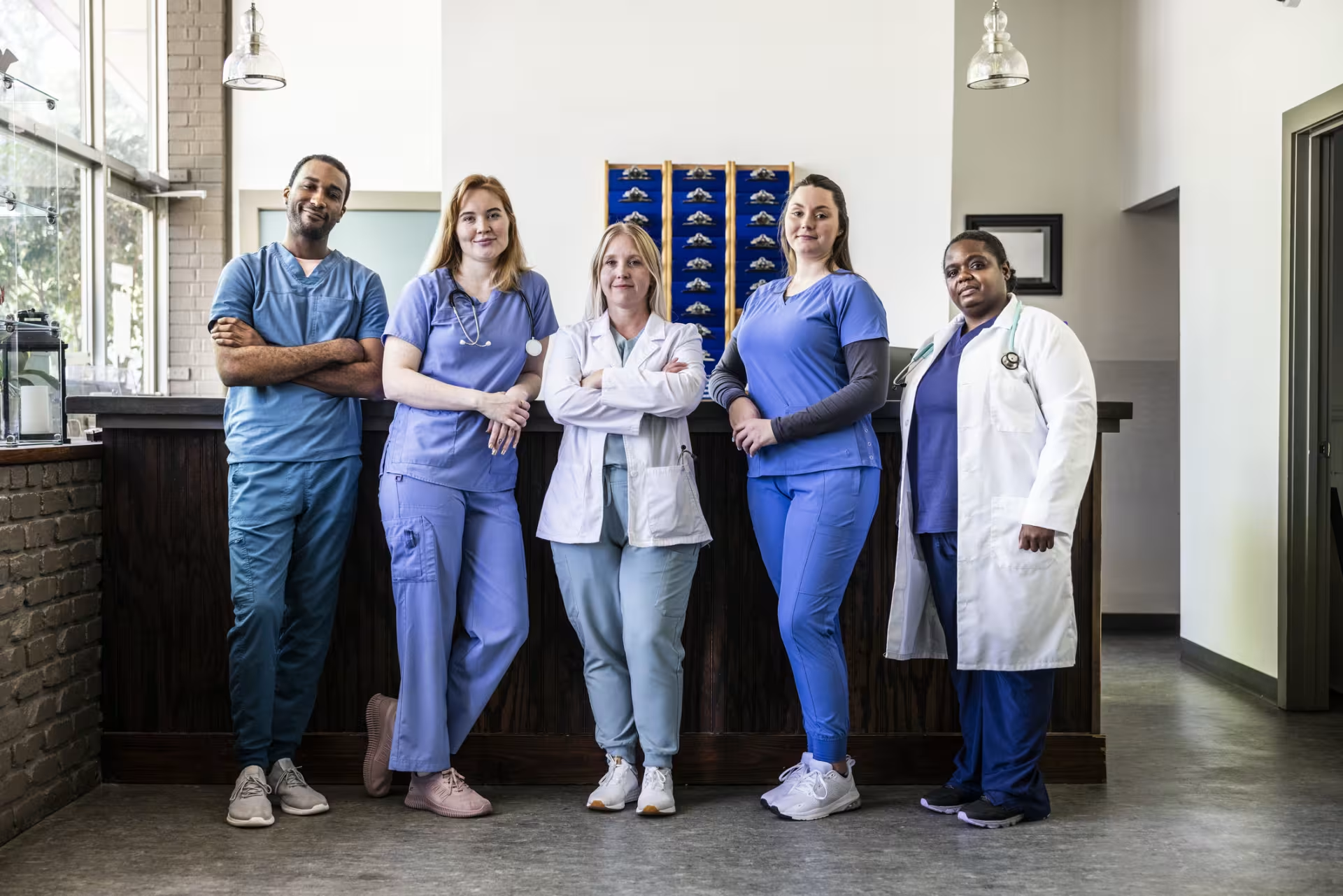Read time 5 minutes
Published on May 18, 2021
If you want to know how to become a geriatrician, it may be because you are concerned about healthcare for older populations. A geriatrician is a physician who works specifically with older adults, providing healthcare, evaluation and treatment. If you earn a geriatrician degree, you can also work to create prevention programs and rehabilitation plans for the aging population.
Geriatricians work to ensure aging adults can maintain their health and independence for as long as possible. They often work with patients who have chronic diseases or failing health.
As geriatricians typically provide end-of-life care, it can be an emotional career choice. Earning a geriatrician degree allows these specialized physicians to work in long-term care facilities, rehabilitation clinics, nursing homes and hospitals. A geriatrician may have to work unconventional hours due to the specific needs of their patients.
Basic Steps to Become a Geriatrician
Geriatricians are physicians, which means you will need to earn a medical degree to practice in the field. To start, you must first earn a bachelor's degree. From there, you can attend medical school. In medical school, you will need to complete residencies in both internal medicine and geriatrics.
Geriatricians must also earn and maintain licenses to practice medicine with the elderly population and may acquire specialty certifications through continuing education programs.
Step One: Earn a Bachelor's Degree
A geriatrician must first earn a bachelor's degree, and no specific degree is required to enter medical school. The Association of American Medical Colleges suggests taking courses in biology, chemistry, organic chemistry and English.(See disclaimer 1) This coursework will help students meet medical school admission requirements.
Some future geriatricians choose to major in science-related disciplines, while others earn unrelated degrees. Medical schools require minimum GPAs, so you will need to do well in your undergraduate studies.
Additional pre–medical school tips for future geriatricians include:
Step Two: Medical School to Earn a Geriatrician Degree
Passing the Medical College Admission Test (MCAT) is required to apply to medical school. Juniors in college can sit for this exam, which includes multiple-choice questions in areas such as problem-solving and science.
After passing the MCAT, you can apply to the medical schools of your choice. Future geriatricians should research schools that specialize in geriatrics or in fields that are related to the needs of aging patients, such as oncology or neurology.
The first four years of medical school will include class work, labs and clinical work. The coursework takes place primarily in the first two years, leaving the last two years for clinical rotations. Students may be able to specialize at this time.
Step Three: Licensing and Geriatrician Fellowship
Geriatricians, along with all others who hope to practice medicine in the United States, must pass a licensing exam known as the United States Medical Licensing Examination (USMLE). To become a licensed geriatrician, a medical student will need to pass the three parts of the exam that test principles related to medicine and patient care.
After successful completion of the licensing exam, a geriatrician will complete a residency in internal medicine. This is generally completed in a hospital or clinic that has a relationship with the medical school. Residencies lasts about three years and allow geriatricians to experience work in various medical specialties, such as cardiology, neurology and geriatrics.
A geriatrics fellowship lasts for one to two years after the residency is complete and takes place at a clinic, hospice, nursing home or other geriatric-related healthcare facility. A geriatrics fellowship gives physicians a chance to experience specialized hands-on training and participate in clinical research as well as train residents and medical students.
Step Four: Continuing Education
Physicians, including geriatricians, are required to participate in continuing education experiences to renew their medical licenses. These hours allow them to stay on top of current research. Geriatricians may find continuing education opportunities through the American Medical Association or work with healthcare facilities and industry organizations that offer training in specialized areas.
Geriatricians can also seek to earn board certification in geriatric medicine. While this certification is not mandatory, it does help geriatricians demonstrate their expertise in the field.
Jobs Related to Geriatricians
Becoming a medical doctor is a lot of work. Some students may look at how to become a geriatrician and think the process takes too long. Some others may think they want to help elderly populations in a different way. The good news is there are many careers related to the study of aging. Some of these careers require differing levels of education and enjoy rapid job growth.
Social Worker
Geriatric social workers help seniors who are having issues with their living conditions or income. They meet with people and their families to put social support systems in place. The need for social workers is projected to grow rapidly between 2019 and 2029.(See disclaimer 2) A social worker must have a master’s degree as well as licensure and certification.
Home Health Aide
Home healthcare workers assist elderly people in their homes. They may administer medication and help the patient bathe and dress. The home health aide may also do the cooking and shopping for a patient. While home health aides with medical backgrounds are needed to support patients with more extensive needs, many personal healthcare workers only need to meet certain state requirements.
The need for home healthcare workers is rising rapidly and is projected to grow as more of the population ages.(See disclaimer 3)
Nursing Home Facilitator
Directors of nursing homes and assisted living centers manage personnel and budgets. They ensure the institution meets the health and safety regulations required by the state and federal government. Nursing home facilitators generally must have at least a bachelor’s degree, but they may also need to be licensed or certified depending on the state. The U.S. Bureau of Labor Statistics projects health services manager jobs will grow by substantially between 2019 and 2029.(See disclaimer 4)
As a future geriatrician, you can find many bachelor’s degrees at Grand Canyon University that will help lead to your medical school admissions. Consider earning a Bachelor of Science in Psychology or a Bachelor of Science in Behavioral Health Science. Alternatively, if you want to work with elderly patients in a role that does not require medical school, you can earn a Graduate certificate in Geropsychology from GCU.
Retrieved from:
(See disclaimer 1)Association of American Medical Colleges (AAMC), Admission Requirements in January 2021.
(See disclaimer 2)U.S. Bureau of Labor Statistics, Occupational Outlook Handbook, Social Workers in January 2021.
(See disclaimer 3)U.S. Bureau of Labor Statistics, Occupational Outlook Handbook, Home Health Aides and Personal Care Aides in January 2021.
(See disclaimer 4)U.S. Bureau of Labor Statistics, Occupational Outlook Handbook, Medical and Health Services Managers in January 2021.





